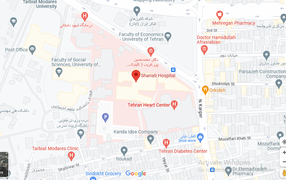Development Implementation and Evaluation of the Fellowship Course Regenerative Medicine in Dentistry

Abstract
Introduction: Scientists have developed solutions, for oral health by leveraging advancements in medicine. These solutions, known as “ reconstructive dentistry “ aim to address the limitations and short lifespan of restorative methods. Unlike restorative treatments, reconstructive dentistry focuses on not only restoring the structure of tissues but also their physiological functions. To achieve this, it requires an effort among dentists, biologists, stem cell researchers, material scientists, tissue engineers and other experts. Consequently, this study was carried out to create and evaluate a fellowship program called “Reconstructive Medicine in Dentistry.” The program aims to foster an approach towards reconstruction, in dentistry. Materials and Methods: This research involved three stages. Utilized a mixed method approach. In the first stage, we developed a design based on the Kern model, which involved conducting a review of relevant studies to extract and determine the goals and topics related to medical reconstruction, in dentistry. Expert panel meetings were held to finalize these goals and topics. For each target group, we identified the learners, learning environment and educational strategies. We also made arrangements for implementing the program. Established evaluation methods for both students and the program itself. Subsequently, we implemented the designed curriculum for two groups of students. Finally, we evaluated the program’s effectiveness through questionnaires and semi structured interviews, with students, professors and organizers. The collected data was analyzed using statistics. Results: In 2020 and 2021, two groups of students were meticulously selected from disciplines such as maxillofacial surgeons, oral medicine specialists, periodontists, endodontists, and more, after passing the entrance exam. The primary objective of this program is to educate graduates with the skills to restore missing tissues in the mouth, jaw and facial regions using cutting edge regenerative medicine techniques. The curriculum was developed in collaboration with experts from areas like tissue engineering, dental specialization (including maxillofacial surgeons) biomaterials and developmental biology. Both students and professors expressed satisfaction, with the program. Conclusion: A group of professors, from specialties came together to implement a fellowship program in reconstructive dentistry. The main goal of this program was to train specialists in tissue reconstruction for patients who have suffered jaw and facial injuries; by using advanced methods in medicine. Additionally, this initiative can also be a step towards strengthening the university’s movement towards third and fourth-generation universities. The findings from this study can provide insights, for those involved in planning and implementing interdisciplinary fellowship programs. Keywords: Dentistry; Regenerative medicine; Curriculum design; Interdisciplinary.



